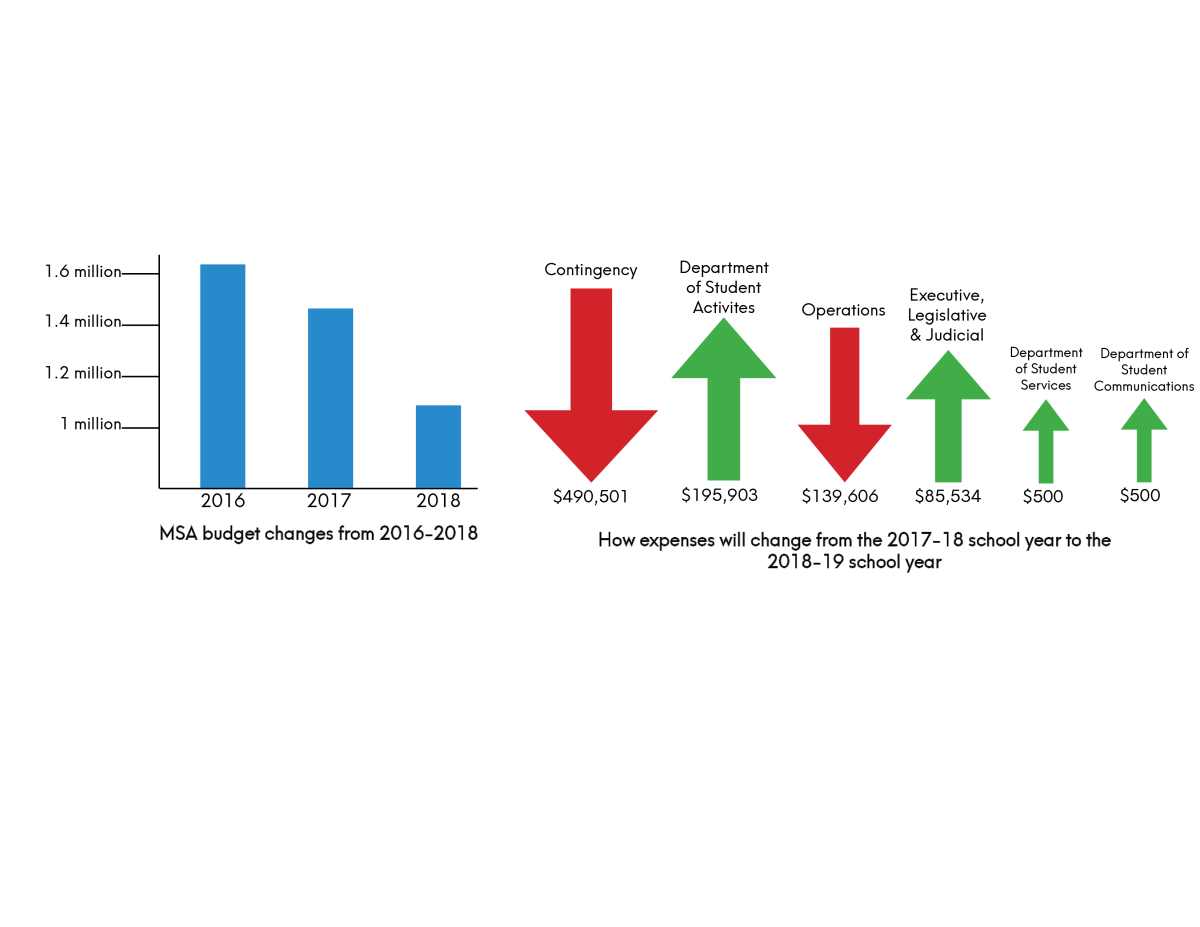The Missouri Students Association passed the fiscal year 2019 budget in full senate on March 21. Compared to last year’s budget of $1,470,860, the 2019 budget totals $1,123,190.
The change in the budget is due, in part, to the April 11 removal of several auxiliaries. These five auxiliaries are KCOU, MUTV, MSA/GPC Box Office, MSA/GPC Tech, and Student Legal Services. The auxiliary removal saved $60,000 from the MSA budget, budget chair Jake Eovaldi said.
Another large change in the budget is the decrease in estimated revenue in student activity fees from $1,004,800 in the 2018 budget to $910,733 in the 2019 budget.
The decline in student fees reflects the moving of money out of MSA to other student organizations, Eovaldi said. Each student will pay approximately the same as last year.
“I think the budget changes will have a positive impact on students,” senate speaker Jacob Addington said in an email. “By transferring the Department of Student Activities, it will allow MSA to spend more time focussing on auxiliaries like Tiger Pantry, Truman’s Closet, and STRIPES which give much needed services to students every week.”
The budget was written by Eovaldi and Vice President Payton Englert. However, all of MSA senate is involved in writing the budget in some capacity.
The information for the budget is collected over the course of the year through various meetings with auxiliaries, departments and branches of the government. After collecting this information, the budget is made during a monthlong process where each organization under MSA requests a certain amount of money to be allocated to them. The budget committee works with organizations to finalize an amount.
The proposed budget is then presented to MSA senate three times, during which students and senators can voice their concerns. Then it is voted on and presented to administration for finalization. Dean of Students Jeffrey Zeilenga and Vice Chancellor for Operations Gary Ward make the final decision on the budget.
“I think students should have a say in all decisions that are made that affect them, especially when it comes to how their money is being spent,” Addington said in the email. “Since the budget is written by students, it shows administrators that these are [the] areas that we see as a priority and these are the areas that we feel should be supported by the money we pay to the University.”
_Edited by Skyler Rossi | [email protected]_








